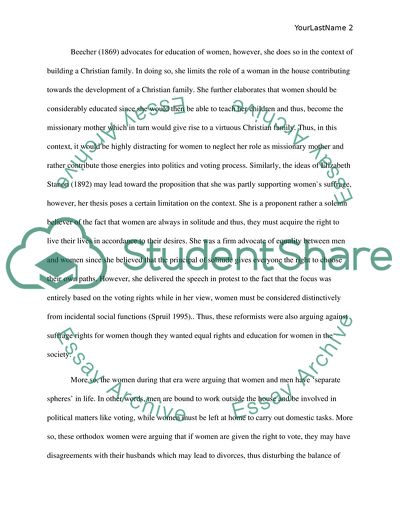Cite this document
(Woman's Suffrage Report Example | Topics and Well Written Essays - 1500 words, n.d.)
Woman's Suffrage Report Example | Topics and Well Written Essays - 1500 words. https://studentshare.org/history/1817658-womans-suffrage
Woman's Suffrage Report Example | Topics and Well Written Essays - 1500 words. https://studentshare.org/history/1817658-womans-suffrage
(Woman'S Suffrage Report Example | Topics and Well Written Essays - 1500 Words)
Woman'S Suffrage Report Example | Topics and Well Written Essays - 1500 Words. https://studentshare.org/history/1817658-womans-suffrage.
Woman'S Suffrage Report Example | Topics and Well Written Essays - 1500 Words. https://studentshare.org/history/1817658-womans-suffrage.
“Woman'S Suffrage Report Example | Topics and Well Written Essays - 1500 Words”. https://studentshare.org/history/1817658-womans-suffrage.


